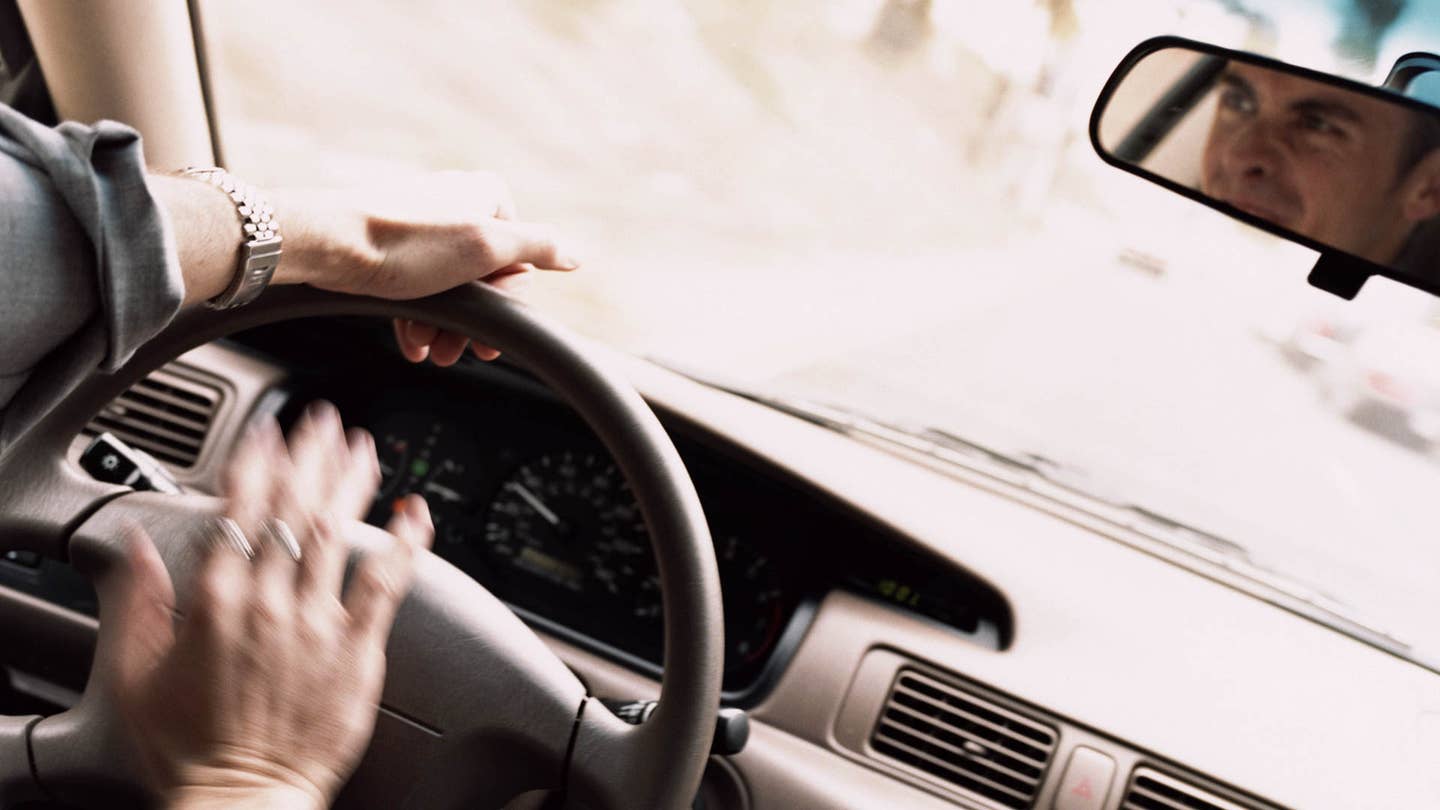At least 41 states have laws about when and how you can honk your horn.

Is horn-honking protected by the First Amendment? That’s what Californian Susan Porter is about to find out, as she takes her case to the Supreme Court, after being ticketed for honking her horn in protest of her congressman back in 2017. According to USA Today, the argument from Porter and her lawyers is that honking your car horn is a form of free speech and that drivers shouldn’t be ticketed for it.
The district judge and appeals court panel have already ruled against Porter but, in late October, her lawyers filed a petition to the Supreme Court for a writ of certiorari, asking the lower court’s decision to be reviewed. “The car horn is the sound of democracy in action,” said Porter’s lawyers in their appeal.
Porter’s Supreme Court petition does ask a tricky question: is horn honking free speech? According to the laws of at least 41 states, that answer is no. Many states have laws restricting honking your car horn, in some form or another, for anything other than warning other drivers or pedestrians of danger, even if they aren’t typically enforced.
Getty
My home state of New Jersey has such a law: “The driver of a motor vehicle shall, when reasonably necessary to insure safe operation, give audible warning with his horn but shall not otherwise use such horn when upon a highway.” Although, anyone who’s driven on the Garden State Parkway knows that law has probably never been enforced.
New York has a similar law, stating that “Horn honking is only allowed as a warning of danger.” So does Texas, which has a law that says “It shall be unlawful for the driver or operator of any motor-driven vehicle to sound the horn, gong or other device for giving warning upon same, in a loud, unusual or unnecessary manner or to use same at any time or place except as a warning of danger.”
Many states also have specific, circumstantial horn honking laws, for things like noise pollution. So certain areas may have laws that forbid horn honking at certain times, to prevent drivers from laying on their horns in residential areas in the middle of the night, for example.
Laws or no laws, people have been honking their horns for reasons other than warnings since cars came with horns. Honking in signs of support for striking workers, politicians, and even sports teams are regular occurrence. Friends will honk horns to get each others’ attention, some drivers will give a thankful double-toot of the horn if someone lets them into traffic, and sometimes your kid will climb over the armrest from the back seat to unexpectedly lay on the horn while in a parking lot, just to be obnoxious. Maybe that last one is just my personal experience.
The point is people honk their horns for plenty of reasons, other than warning other drivers. Is that protected speech and should it be? According to most states, it isn’t, but that’s what Susan Porter is trying to change.
Got tips? Send ’em to tips@thedrive.com


